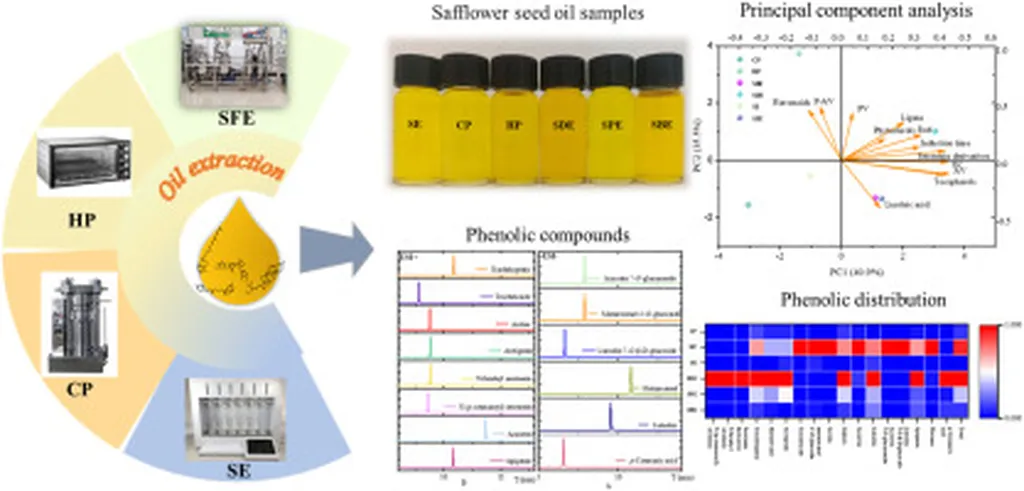In the vast landscape of edible oils, safflower seed oil (SSO) and flaxseed oil (FSO) stand out for their unique nutritional profiles and potential health benefits. A recent study led by Jiayan Yang from the College of Smart Agriculture at Xinjiang University has shed new light on how physical refining processes impact the fatty acid composition and physicochemical properties of these oils, with significant implications for the food and energy sectors.
The study, published in the journal *Foods* (translated from Chinese as “食品”), employed advanced analytical techniques such as gas chromatography and ultra-high-performance liquid chromatography to compare the effects of refining on SSO and FSO. The researchers identified a total of 40 and 43 fatty acids in SSO and FSO, respectively, with polyunsaturated fatty acids (PUFAs) such as C18:2 (linoleic acid) and C18:3 (linolenic acid) being particularly affected by the deacidification process.
“Our findings indicate that optimized refining significantly enhances the quality parameters of both SSO and FSO,” said Yang. “However, the process also leads to notable changes in their fatty acid profiles, which could have implications for their nutritional value and commercial applications.”
The study identified 20 significantly different lipids between SSO and FSO, with glycerophospholipids and glycerolipids being the most affected. Notably, two lipid species, C18:2 and C18:3 (9, 12, 15), exhibited marked differences, suggesting that these lipids could serve as significant discriminators between the two oils.
The commercial impacts of this research are substantial. For the food industry, understanding how refining processes affect the fatty acid composition of these oils can help optimize their nutritional value and extend their shelf life. In the energy sector, the unique properties of these oils make them potential candidates for biodiesel production. The insights gained from this study could guide the development of more efficient refining processes, ultimately enhancing the yield and quality of these oils for energy applications.
Moreover, the lipidomics approach employed in this study offers a powerful tool for future research. By providing a comprehensive profile of the lipid species present in these oils, this approach can help identify novel biomarkers and targets for improving oil quality and yield.
As the demand for sustainable and renewable energy sources continues to grow, the insights gained from this study could pave the way for innovative solutions in the energy sector. By optimizing the refining processes of SSO and FSO, we can unlock their full potential as valuable resources for both food and fuel.
In the words of Yang, “This research not only advances our understanding of the refining processes of these oils but also opens up new avenues for their commercial applications. It’s an exciting time for the field, and we look forward to seeing how these findings will shape future developments.”

